
A YEAR MADE TO MATTER 2022 / 2023
Dear Alumni and Friends,
The year 2022 brought a welcome change from the locked-down years of the pandemic. It was a year of reconnecting, in person, with our global community of alumni and friends. We hosted you on campus for events of all kinds, and MIT Sloan faculty, staff, and students also got back on the road, delivering research at conferences, meeting with and learning from alumni across the globe, and participating in the experiential opportunities that are a hallmark of an MIT Sloan education.
This shift back to being together is cause for celebration. And in the pages that follow, I hope you will find many other things to celebrate. The stories here honor our faculty and their impressive body of work, and our students and the talent and energy they bring to all that they do. These stories are also a tribute to our alumni, donors, and friends, and the impact that you make through your philanthropy and your commitment to the school.
Above all else, MIT Sloan works every day to fulfill its mission to educate principled, innovative leaders. With each class, I am struck anew by just how remarkable every cohort of MIT Sloan students is. Their curiosity and ingenuity are inspiring, and— when coupled with their empathy, generosity of spirit, and unique perspectives on how to make this world a better place—it is no surprise to hear alumni around the world remark on how amazing the Sloanies of today truly are.
You will find facts and figures here that bear out that observation. Just one example is that Admissions statistics show that the incoming MBA class comprised record numbers of women (46%) and members of historically underrepresented groups (32%). These numbers set a goal for us to strive toward—a goal for us to strive to exceed—in each year that lies ahead.


Support from you, our alumni and friends, makes this possible, giving our Admissions team the tools they need to matriculate the extraordinary students who will go on to join you in making a difference. Your impact is larger than you know, and grows with each individual it touches.
Year over year, many things can and do change about the Institute and MIT Sloan. New faculty and students join us and leave us, new research and new ventures are launched from campus into the world. This year, we welcome a new president in Sally Kornbluth and look ahead to the exciting initiatives that come with an administration shift. But some things don’t change—won’t change. MIT Sloan, our programs, and especially our people—our faculty, our amazing students, you, and every member of the global MIT Sloan community —are and will always be MIT Sloan’s pillars, the embodiment of principled, smart, and innovative.
I hope you see yourself in the wonderful community reflected in these pages. I hope you remember your time here and the connections you’ve made with other Sloanies in the years since, and find threads of inspiration you might wish to unravel further.
Very best,
 Kathryn Hawkes Associate Dean Office of External Relations and Global Programs
Kathryn Hawkes Associate Dean Office of External Relations and Global Programs

A YEAR MADE TO MATTER // 1
By the Numbers ADMISSIONS
For the 2022–2023 academic year, the MIT Sloan School of Management has continued to move the needle on diversity, equity, and inclusion. Simultaneously, the school has also maintained—and, for some metrics, even increased—its rigorous standards for the quality of the student population. For example, the incoming MBA class comprised record numbers of women (46%) and members of historically underrepresented groups (32%).
UNDERGRADUATE (COURSE 15 PARTICIPATION SOPHOMORES, JUNIORS, AND SENIORS)
178 41 42% OF THE 2022 MIT GRADUATING CLASS TOOK AT LEAST ONE COURSE 15 CLASS MAJORS MINORS
173 UNDERGRADUATE RESEARCH OPPORTUNITIES PROGRAM (UROP) PROJECTS OFFERED BY MIT SLOAN FACULTY

114 FIRST-YEAR STUDENTS ENROLLED IN 15.000 EXPLORATIONS IN MANAGEMENT
MBA (INCLUDING LEADERS FOR GLOBAL OPERATIONS)
*Not comparable to other programs as sponsored students undergo separate pre-selection processes.
CLASS SIZE INTERNATIONAL CITIZENS DEMOGRAPHICS (WOMEN) APPLICANTS PER SEAT AVERAGE GMAT AVERAGE EXPERIENCE (YEARS) 408 40% 46% 13 724 5.24 MASTER OF BUSINESS ANALYTICS (MBAN) CLASS SIZE INTERNATIONAL CITIZENS DEMOGRAPHICS (WOMEN) APPLICANTS PER SEAT AVERAGE GRE AVERAGE EXPERIENCE (MONTHS) 78 74% 37% 16 168 (q) 17.73 MASTER OF FINANCE
CLASS SIZE INTERNATIONAL CITIZENS DEMOGRAPHICS (WOMEN) APPLICANTS PER SEAT AVERAGE GRE AVERAGE EXPERIENCE (MONTHS) 123 93% 34% 16 169 (q) 15.76 SLOAN FELLOWS (SFMBA)* CLASS SIZE INTERNATIONAL CITIZENS DEMOGRAPHICS (WOMEN) APPLICANTS PER SEAT AVERAGE EA AVERAGE EXPERIENCE (YEARS) 109 70% 37% 7 155 15.13
(MFIN)
2 // MIT SLOAN SCHOOL OF MANAGEMENT

EXECUTIVE MBA (EMBA) CLASS SIZE INTERNATIONAL CITIZENS DEMOGRAPHICS (WOMEN) APPLICANTS PER SEAT AVERAGE EXPERIENCE (YEARS) 124 16% 33% 2.4 17 MASTER OF SCIENCE IN MANAGEMENT STUDIES (MSMS) CLASS SIZE INTERNATIONAL CITIZENS DEMOGRAPHICS (WOMEN) APPLICANTS PER SEAT AVERAGE GMAT AVERAGE EXPERIENCE (YEARS) 21 95% 29% 3 707 4.05 PHD CLASS SIZE INTERNATIONAL CITIZENS DEMOGRAPHICS (WOMEN) APPLICANTS PER SEAT 18 44% 39% 31
“Our students and alumni are the type of people who live by the school’s mission, which is to identify and solve the world’s biggest problems to make it a better place. They have a natural inclination—or an interest in learning how—to make an impact.”
A YEAR MADE TO MATTER // 3
Dawna Levenson, SB ’83, SM ’84, Assistant Dean of Admissions
Collaboratively Designing Outcomes
CAREER OUTCOMES
STAY ENGAGED, STAY CONNECTED FIND CAREER EVENTS, RESOURCES FOR CAREER TRANSITIONS, AND CAREER COACHING ON YOUR CDO. LOOKING TO RECRUIT SLOANIES FOR YOUR ORGANIZATION? POST A JOB ON CAREER CENTRAL OR CONTACT SUSAN TODD (SENIOR ASSOCIATE DIRECTOR, RECRUITING SERVICES; ALUMNI EMPLOYER RELATIONSHIP MANAGER) AT STODD@MIT.EDU TO DISCUSS THE BEST WAYS TO CONNECT WITH STUDENTS. $165K MEDIAN BASE SALARY $110K MEDIAN BASE SALARY OF JOB-SEEKING STUDENTS RECEIVED AN OFFER WITHIN 3 MONTHS OF GRADUATION OF JOB-SEEKING STUDENTS RECEIVED AN OFFER WITHIN OF GRADUATES INDICATED THEY ARE STARTING THEIR OWN BUSINESS 96.6% 10.3% TOP INDUSTRIES 100% 6 31.2% 22.6% 22.6% 16.8% 6.8% CON SULTING TECHNOLOGY FINANCE OTHER HEALTHCARE BIOTECH/ PHARM A MONTHS OF GRADUATION MBA May 2022 MFin February 2022 4 // MIT SLOAN SCHOOL OF MANAGEMENT
Top Employers
MBA Class of 2022 MFin Class of 2022
National Alumni Career Mobility (NACM) Survey Classes of 2011 and 2016
SLOANIES SAID MIT SLOAN HELPED THEM NETWORK COMPARED WITH THE NACM AVERAGE
25% 40% 60% 92%
“�These exceptional employment outcomes reflect the dedication of many across the MIT Sloan community who contribute to an experience that creates leaders who are energized and prepared to transform the future of business.”
MORE
OF HIRING COMPANIES ARE NEW TO THE CDO SYSTEM 46% CURRENTLY OWN THEIR BUSINESS EARN UP TO $299,000 ANNUALLY EARN $300,000 AND ABOVE ANNUALLY SAID THEIR CURRENT POSITION RELATES TO CAREER GOAL
Susan Brennan, Assistant Dean, Career Development Office
2X
Amazon Amgen Apple Bain & Company Boston Consulting Group Capital One Deloitte Goldman Sachs Google McKinsey & Company Bank of America BlackRock China International Citi Credit Suisse
Bank Goldman Sachs
Chase & Co. Morgan Stanley
Corporation
A YEAR MADE TO MATTER // 5
Deutsche
HSBC JPMorgan
UBS Capital
Building a DEI Ecosystem
MIT Sloan has been sharpening its focus on diversity, equity, and inclusion (DEI) based on coordinated contributions from staff members, a recent task force composed of alumni and faculty, and the MIT Sloan Student Senate. The MIT Sloan Office for Diversity, Equity, and Inclusion has spent over a year on systemic DEI efforts in the community aimed at improving dialogue, communication, understanding, and action. Thanks to the dedicated work of the team and the MIT Sloan community, this work is evolving and growing considerably.
STAFF EXPANSION
In August 2021, the DEI Office consisted of only four members. “We’ve been building our team by adding positions in our Admissions, Career Development, and Communications offices,” explains Bryan Thomas (Assistant Dean, Diversity, Equity, and Inclusion). These include Steven Branch (Associate Director, Diversity, Equity, and Inclusion, Career Development Office), Terrell Williams (Associate Director, Admissions, Diversity Recruiting), and Benjamin Daniel (Assistant Director, Diversity, Equity, and Inclusion, Communications). Additionally, Kayla Burt (Data Research Analyst), Amanda Jarvis (Assistant Director, Diversity, Equity, and Inclusion), and Kaylicia Merisier (Senior Administrative Assistant) have also joined the DEI Office.
OPEN AND INCLUSIVE (O+I) STAFF TRAININGS
In February 2022, a new DEI curriculum in line with MIT values was rolled out to enhance the experience of MIT Sloan employees by creating a shared understanding of the organizational and personal impediments to inclusion and offering shared tools for addressing these barriers. According to Jarvis, who directs the program, it is open to all members of the staff: “Open and Inclusive is the most ambitious and intentional effort at collective learning that we have ever attempted to deliver to the staff at MIT Sloan.” Participants have been introduced to DEI frameworks, anchor points for community-wide discussion, broadened perspectives, and ways to identify and advocate for systemic change. O+I also leverages data collection and analysis frameworks created by Burt, which allow the team to measure course outcomes and plan enhancements in an intentional and data-driven way. The sixteenth cohort completed training in December 2022.
A MORE DIVERSE STUDENT BODY

The MIT Sloan Class of 2024 is one of the most diverse classes the school has ever seen in terms of gender, race, and ethnicity. In total, 46% of the incoming MBA class are women, 12% identify as Black, and 17% identify as Latinx. MIT Sloan Admissions has also extended its recruiting efforts to historically Black colleges and universities (HBCUs). In 2022, Williams visited four HBCU graduate school fairs and attended the White House Initiative for Historically Black Colleges and Universities.
DISCUSSIONS AND DILEMMAS (D 2 )
This new DEI and leadership initiative was designed to increase communication and community-building opportunities for students. Created in collaboration with the MIT Sloan Student Senate, the course invited MBA, MBAn, Sloan Fellows, LGO, EMBA, PhD, and MFin students to engage in small group discussions about the most pressing questions in business and society with faculty facilitators.
15.002 LEADERSHIP CHALLENGES FOR AN INCLUSIVE WORLD
In collaboration with the MIT Leadership Center, this course takes place during the MIT Sloan Intensive Period (SIP) and—using an MIT system dynamics framework—explores the complexities of DEI and ethics. Over the span of the two-and-a-half-day course, students choose a discipline-specific ethics workshop to attend, engage in an immersive simulation activity, and participate in both faculty-led learning and facilitated peer conversations about leading within biased systems.
NEW AND REVAMPED PROGRAM ORIENTATIONS
First-year MBA students now focus on implicit bias and dialogue across differences in their initial orientation. They also go through a re-orientation in their second year, focusing on DEI in industry and future DEI leadership role opportunities. EMBA students emphasize collective learning, fixed versus growth mindsets, and the differences between being informed versus being right. MFin and MBAn students have industry-specific content, while Sloan Fellows focus on cross-cultural awareness.
SMARTER TOGETHER
6 // MIT SLOAN SCHOOL OF MANAGEMENT
DEI AWARDS AND DEI CAPSTONE
The DEI Office launched the inaugural DEI Awards alongside their DEI capstone, The ComMITment, which is designed to help MIT Sloan students learn from leaders about how to address systemic inequality and solve related challenges. The keynote speaker in early 2022 was Segun Idowu, Boston’s inaugural chief of economic opportunity and inclusion. Jordan Dominguez , MBA ’22, Courtney Jacobovits , MBA ’22, and MBA candidate Christina Peña received the first DEI Awards.
REALTALK@MIT
This new community-based civic space is an Institute-wide initiative to empower conversations across MIT’s population and channel these voices to influence decision-making through a new type of open, nuanced communication infrastructure. Departments, labs, and centers across the Institute are encouraged to constructively shape MIT’s effort to create a living values statement, and MIT Sloan was a part of the program’s pilot group in 2021. RealTalk rolled out for MIT Sloan stakeholders during the 2022–2023 academic year. A larger rollout is planned for 2023.
ALUMNI ENGAGEMENT
Since the inception of the Endowment for Enduring Diversity and Inclusion, the school has raised and committed over $25 million for DEI fellowships and continues to cite alumni as one of its most powerful resources. Austin Ashe (Senior Associate Director, Belonging and Culture) explains, “MIT Sloan alumni are emblematic of the concept of ‘Smarter Together.’ When they were studying here, they advocated for change and found ways to partner with MIT Sloan staff, faculty, and senior administration.” Additionally, alumni groups like the MIT Sloan Affinity Group Alumni Council have been helpful toward DEI efforts and will be needed in the future.
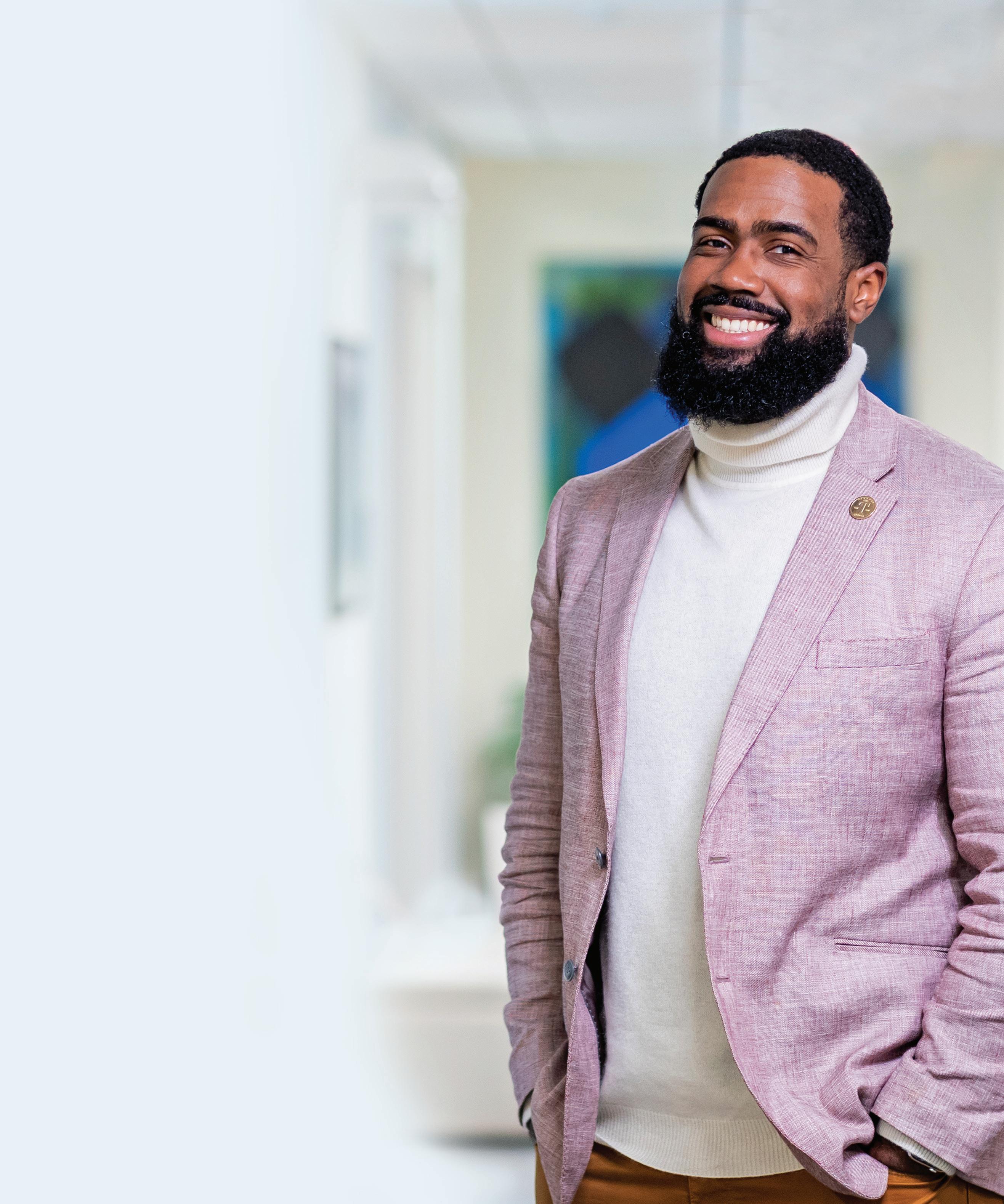
GET INVOLVED
Alumni who want to get involved with DEI efforts at MIT Sloan— including mentorship and speaking opportunities—can email mitsloanalumnirelations@mit.edu for more information.
“Many of our students would love to connect with alumni for mentorship. In addition, if any alumni are interested in serving as speakers in the classroom, they can join our speaker database, which we created to help faculty identify diverse speakers to share their insights in their classes.”
Bryan Thomas, Assistant Dean for Diversity, Equity, and Inclusion
A YEAR MADE TO MATTER // 7
MIT REAP: 10 Years and Over 750 Alumni Later
In the past decade, the MIT Regional Entrepreneurship Acceleration Program (REAP) has helped communities around the world strengthen innovation and entrepreneurship in their region through a novel approach based on leading MIT research.

The cohorts that have gone through this program have achieved real impact in their economies and innovation ecosystems, from winning a bid for $300 million in funding for a regional ocean supercluster (Nova Scotia, Cohort 4) to facilitating urgently needed technical innovation in the Appalachian region (Kentucky, Cohort 6) to spearheading policy such as the Nigeria Startup Bill, which recently became an act that aims to ensure an ecosystem where entrepreneurship and tech startups can thrive (Abuja, Cohort 7). All the while, through the delivery and impact of the program, MIT Sloan faculty have honed their understanding of how to create economic and social impact through accelerating innovation ecosystems.
A two-year engagement with MIT Sloan, MIT REAP educates and empowers participating regions by translating research into practical frameworks, convening multi-stakeholder teams focused on innovationdriven entrepreneurship, and working with these regional leaders through its Action Learning approach to ecosystem acceleration. The program coaches its global teams in designing and executing strategic initiatives that move the needle on regions’ innovation and entrepreneurship, job creation, and social progress. As of this writing, the program has worked with more than 70 regions worldwide and can count over 750 alumni.
“In most parts of the world, you’ll find these clusters of expertise,” Michael Cusumano (Deputy Dean; Sloan Management Review Distinguished Professor of Management; Professor, Technological Innovation, Entrepreneurship, and Strategic Management) explained in a September 2022 presentation. “What is that area? Can we connect it to entrepreneurship? What are the new areas that need to be developed? We try to understand that.” The ultimate work of the two-year MIT REAP process is to empower a region to “build more permanent organizations that will continue beyond [their time in MIT] REAP.”
From this work, MIT Sloan faculty have seen surprising entrepreneurial impacts in the last several years despite economic volatility; the time is right to conduct this work, in other words. “The idea that the pandemic has kind of restarted America’s startup engine is a real thing,” Scott Stern (David Sarnoff Professor of Management of Technology; Professor, Technological Innovation, Entrepreneurship, and Strategic Management; Co-founder, MIT REAP) told The New York Times in 2021. “Sometimes you need to turn off the car in order to turn it back on.”
BY THE NUMBERS
GLOBAL ENGAGEMENT
8 // MIT SLOAN SCHOOL OF MANAGEMENT
70+ REGIONS WORLDWIDE HELPED BY MIT REAP 750+ MIT REAP ALUMNI 10 YEARS OF MIT REAP
“No one is in charge of entrepreneurship... instead, multiple stakeholders are required to tackle big problems and enable the success of novel solutions—across business, healthcare, education, and more,” Stern added in a May 2022 press release. “After delivering the program for 10 years to more than 70 global teams, we know this regional approach works.”
The evolution of the bespoke MIT REAP Focus program, in addition to the flagship Global program, is a testament to these ongoing efforts—with a single region receiving targeted strategic guidance for accelerating its innovation and entrepreneurship. Thus far, three regions have participated in customized cohorts of MIT REAP Focus: the United Kingdom, Nova Scotia, and Mexico.
“After registering the broad success of our Global program, we have been thrilled by the successful inception of the customized Focus programs,” says Travis Hunter (Director, MIT REAP). “We are seeing that the MIT REAP approach works broadly across diverse regions and in culturally and economically targeted regions. We look forward to continuing to create impact and build the MIT REAP community through our multiple program offerings.”
Alumni of the program join the MIT REAP Global Network (RGN), a platform for not only continuing their engagement with MIT and accessing Institute resources but also for cross-collaborating with other MIT REAP cohorts and teams. The program will mark its first 10 years by hosting a series of regional reunions, culminating in an Alumni Summit for all cohorts and the public to formally engage in person, to be held on campus in August 2023. The summit will explore alumni impact stories, MIT REAP faculty’s emerging research, and other leading topics in innovation and entrepreneurship.
Simultaneously, MIT REAP will launch an online platform to house data from its cohorts, associated faculty research, case studies, and impact stories. It will be the product of a decade’s worth of work, countless partnerships with stakeholders, and stories of regional success—with the insights available for others to see, take inspiration from, and emulate.
For regions interested in participating, please visit reap.mit.edu/learn-more-about-mit-reap to request more information.

“After delivering the program for 10 years to more than 70 global teams, we know this regional approach works.”
Scott Stern, David Sarnoff Professor of Management of Technology
A YEAR MADE TO MATTER // 9
Exploring Digital Transformation
The gap between technological progression and human evolution grows wider as new developments like artificial intelligence (AI) and data analytics have profound impacts on societies and economies. The MIT Initiative on the Digital Economy (IDE) is “shaping a brighter digital future.”
“Every day at the IDE, we engage with marketing executives to understand the networked economy to meet consumers’ needs,” says Sinan Aral , PhD ’07 (David Austin Professor of Management, Marketing, IT and Data Science; Director, MIT IDE). “As a result, we are upending conventional approaches and strategies.”
For the IDE, 2022 was a banner year. In March, technology and policy experts and more than 12,000 virtual attendees convened for the second annual Social Media Summit@MIT to examine the growing impact of social media on the world’s democracies, economies, and public health policies. Four months later, the Platform Strategy Summit reconvened in person after two years of virtual programming for its 10th anniversary. More than 350 participants gathered at the MIT Media Lab to examine the past, present, and future of digital platforms—including healthcare platforms. The Conference on Digital Experimentation closed out 2022 in October with over 350 researchers from academia and industry discussing the most significant innovations in modern social science.
The IDE is also the center of several significant research projects. In a September issue of Science, Aral and his coauthors published “A Causal Test of the Strength of Weak Ties,” an analysis of data from multiple large-scale randomized experiments on LinkedIn’s People You May Know algorithm over five years. They focused on weak ties in networks of over 20 million people and produced results providing causal evidence supporting the strength of weak ties.
“The strength of weak ties is one of the most influential social theories of the last five decades, but until now no comprehensive experimental causal tests of this theory existed as it relates to employment,” says Aral. “More than ever, people are using social media platforms to find jobs, search for better jobs, or switch industries entirely.”
Additionally, David Rand (Erwin H. Schell Professor; Professor of Management Science and Brain and Cognitive Sciences), who leads the IDE’s Misinformation & Fake News Research Group, conducted a megastudy with several coauthors testing 25 interventions designed to reduce anti-democratic attitudes and partisan animosity among Americans. Contrary to expectations, nearly every selected intervention significantly reduced partisan animosity.
EPICENTERS OF INVENTION
10 // MIT SLOAN SCHOOL OF MANAGEMENT
“The growth in misleading rhetoric from U.S. congressional candidates on topics such as election integrity has put renewed pressure on social media platforms ahead of [elections],” Rand explains, adding that their findings can provide a toolkit for practitioners and shed new theoretical light on the challenges facing American democracy.
In June, Renée Richardson Gosline (Senior Lecturer, Marketing; Research Scientist, IDE), who leads the HumanFirst AI Research Group, published “Why AI Customer Journeys Need More Friction” in Harvard Business Review. “Friction isn’t always a bad thing,” wrote Gosline. “The trick is learning to differentiate good friction from bad, and to understand when and where adding good friction to your customer journey can give customers the agency and autonomy to improve choice.”
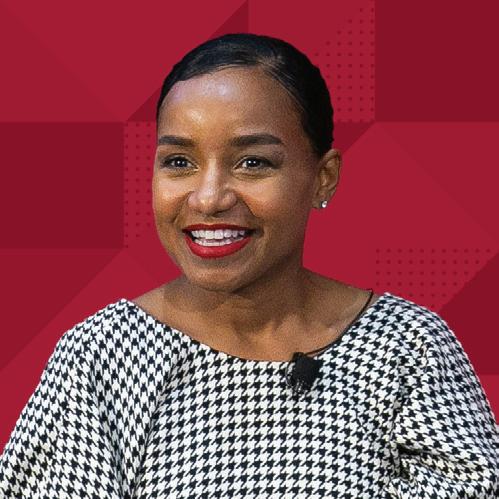
Over the summer, the IDE launched a new podcast, The Digital Insider with Sinan Aral, which takes a deep dive into how the digital economy operates. Notable guests so far include Nobel Peace Prize laureate Maria Ressa, Facebook whistleblower Frances Haugen, MSNBC host Ali Velshi, and business guru Scott Galloway. Digital Insider is already a “Top 20” podcast in the U.S.
“As the digital economy heats up, so do the efforts of the IDE,” says David Verrill , SM ’87 (Executive Director, MIT IDE). “We are ahead of the curve with our cutting-edge research and science-based experimentation about social media, marketing, and technology. Our community continues to expand.”



l RenéeRichard
G o s leni Sinan Aral
David Rand David Verril
son
“As the digital economy heats up, so do the efforts of the IDE. We are ahead of the curve with our cutting-edge research and science-based experimentation about social media, marketing, and technology. Our community continues to expand.”
David Verrill, SM ’87, Executive Director, MIT IDE
A YEAR MADE TO MATTER // 11
Making Work Better
How can work be improved for both employees and organizations? This question is central to the work of the MIT Institute for Work and Employment Research (IWER), which began as the Industrial Relations Section of the MIT Department of Economics and Social Science in 1937.
“ People are sometimes surprised to find out what a long history IWER has,” explains Emilio J. Castilla (NTU Professor of Management; Professor, Work and Organization Studies; Co-Director, IWER). “Although our group has been in existence for more than 80 years, IWER’s work is particularly timely and important now, as societies grapple with the impacts of inequality and a fast-changing world of work.”
Throughout 2022, IWER researchers explored important facets of work and employment, including:
› In two recently published articles, Castilla shed light on the influence of social network connections—for example, “legacy preferences” for relatives of alumni—on the outcome of college and university admission decisions and the schools’ diversity and meritocratic goals.
› Erin L. Kelly (Sloan Distinguished Professor of Work and Organization Studies; Co-Director, IWER) is leading a study in warehouses using participatory approaches and joint problem-solving to improve job quality as well as workers’ health and well-being. The research team plans to consider implications for productivity and turnover as well.
› With colleagues and with support from IWER, Thomas Kochan (George Maverick Bunker Professor of Management Emeritus) has launched a multi-university network that examines worker efforts to gain greater voice at work. So far, the network has published a report providing an overview of the current landscape of U.S. worker activism, developed a collaboration with the U.S. Department of Labor, conducted new research, and convened a dialogue among business leaders, worker advocates, scholars, and others.
› As part of his ongoing research on economic inequality, Nathan Wilmers (Sarofim Family Career Development Associate Professor; Associate Professor, Work and Organization Studies) discovered that after rising for more than 30 years, earnings inequality in the U.S. plateaued in the last decade.
› Anna Stansbury (Class of 1948 Career Development Assistant Professor; Assistant Professor, Work and Organization Studies) studies the macroeconomic effects of the recent decline in U.S. worker power and has investigated firms’ incentives to comply with labor and employment law. She also won a 2022 Outstanding Teacher Award at the 2022 MIT Sloan Excellence in Teaching Awards.
“ One of the things that makes IWER unique among top U.S. business schools is our long-standing focus not only on executives, managers, and organizations, but also on the experience of ordinary workers,” says Kelly. “In today’s polarized and unequal world, IWER’s multistakeholder approach—for example, conducting research that identifies changes to management practices that can benefit both workers and organizations—offers an important path forward.”
EPICENTERS OF INVENTION 12 // MIT SLOAN SCHOOL OF MANAGEMENT INSTITUTE FOR WORK & EMPLOYMENT RESEARCH IWER 85YEARS OF WORK AND EMPLOYMENT RESEARCH AT MIT CELEBRATING
The Future of Consumer Finance
In 2022, MIT Sloan established the Consumer Financial Services and Technologies Research Initiative, a new major research initiative led by Antoinette Schoar (Stewart C. Myers-Horn Family Professor of Finance) and Jonathan A. Parker, PhD ’96 (Robert C. Merton (1970) Professor of Financial Economics; Co-Director, MIT Golub Center for Finance and Policy).
“Financial services and consumer finance markets are undergoing dramatic transformations across a number of fronts. These are fueled by new technologies but are also a response to technological, social, and environmental changes. Greater retail access to financial markets, increased customization, and automation are changing how people interact with the financial system and the risks they bear. Examples of these new technologies range from robo-advisors and online lending platforms to retail investing in derivatives and other complex securities to innovations in payments systems and cryptocurrencies. These changes can be empowering for households but can also undermine their trust in the financial system,” says Schoar. “At MIT Sloan, we are building this initiative to bring together faculty from around campus to work on these issues and improve our capabilities.”
It is important to understand how individuals and financial markets are adjusting to these changes. As such, the initiative will build an understanding of the markets, benefits, best practices, and best regulations as technologies change consumer financial markets. However, the nature of this emerging research field requires a different production model from that of many traditional forms of finance research. At the core of consumer finance research is the use of big data and new forms of data such as blockchain data. Accessing, securing, and manipulating such data is expensive, because it requires more computing power, greater storage, dedicated programmers, and research assistance.
To learn more about this new initiative, please email financeatmit@mit.edu .
A YEAR MADE TO MATTER // 13
Connect. Empower. Act. Highlights from the MIT Sloan Women’s Conference
In late October, the MIT Sloan Women’s Conference commenced. The event was generously sponsored by Brad Feld , SB ’87, SM ’88, Amy Batchelor, and the Anchor Point Foundation.
David Schmittlein (John C Head III Dean) offered a brief state of the school before introducing a fireside chat between Tavneet Suri (Louis E. Seley Professor of Applied Economics) and Esther Duflo, PhD ’99 (Abdul Latif Jameel Professor of Poverty Alleviation and Development Economics). They discussed their work at the Abdul Latif Jameel Poverty Action Lab (J-PAL), which Duflo co-founded in 2003 with fellow 2019 Nobel Prize in Economics recipient Abhijit Banerjee (Ford Foundation International Professor of Economics) and former MIT professor Sendhil Mullainathan.
“This can’t happen without a movement of people,” said Duflo. Suri agreed: “It’s a movement, but it hasn’t been as inclusive of a movement as we would have liked... It needs to be a global movement, and I think we have a responsibility to make it that.”
Energized by the fireside chat, 182 conference participants attended breakout sessions focused on a variety of topics.
In “Leading in the Community,” moderator Nicole Obi , MCP ’95, SM ’95, President and CEO, Black Economic Council of Massachusetts, discussed working in the civic and nonprofit sectors with panelists Sabreen Alikhan , EMBA ’22, Director, Women for Women International, and Jessica Toth , SM ’91, Executive Director, Solana Center for Environmental Innovation.
Other sessions, like “Finding Your Voice, Making Your Impact,” featured more individualized presentations for attendees.
Session facilitator Nicki Roth (Executive Coaching Program Lead, MIT Leadership Center) provided alumnae with practical strategies for overcoming self-doubt and realizing their potential.
“The way we have impact, every single day, is through small actions,” said Roth. “Impact is not the big stuff. You are most likely unconscious of the impact you have on all the people you touch.”
At the final plenary session, Aliza Blachman O’Keeffe, SM ’90, former MIT Sloan Alumni Board chair and MIT Sloan Women’s Conference Steering Committee member, reviewed the day’s events and learnings with the audience and facilitated a series of small group discussions.
“With the amazing lineup of speakers that we had, and the fact that we could each only attend a few of the sessions, we wanted to take some time to reflect on what we heard together, to share collectively, to benefit from the learning that we hope has emerged, and to think about these learnings as one community,” she said.
Keynote speaker Monica Lee, EMBA ’19, NASA Detailee, Federal Reserve Office of the Chief Information Security Officer, then delivered a moving oration about her time at MIT Sloan and her experience at the conference.
“Yes, the ecosystem at MIT is powerful,” said Lee. “To the casual observer, it seems magical, even. But magic, it is not. It is not science fiction. It is science fact, and that is clear in the dialogues and the engagements that have occurred in this year’s breakout sessions, in the conversations in the hallway.”
Throughout her keynote, Lee repeated the chorus, “You are energy.” She drew on the context of work in physical systems, a W.E.B. DuBois quote about there being “no force equal to a woman determined to rise,” and the very nature of existence itself.
“You are energy, and your energy is enough. You are enough to inject strength, hope, and inspiration into the veins of humanity,” she triumphantly proclaimed.
Following Lee’s inspiring speech, Kathryn Hawkes (Associate Dean, Office of External Relations and Global Programs) closed the proceedings. “The network is a living thing today. That energy— we can feel it,” she said. “I hope the question you take out of the day will be, ‘Who will you take with you?’ The women of MIT Sloan, I hope, are part of that answer.”
MIT SLOAN WOMEN
“You are energy, and your energy is enough. You are enough to inject strength, hope, and inspiration into the veins of humanity.”
14 // MIT SLOAN SCHOOL OF MANAGEMENT
Monica Lee, EMBA ’19


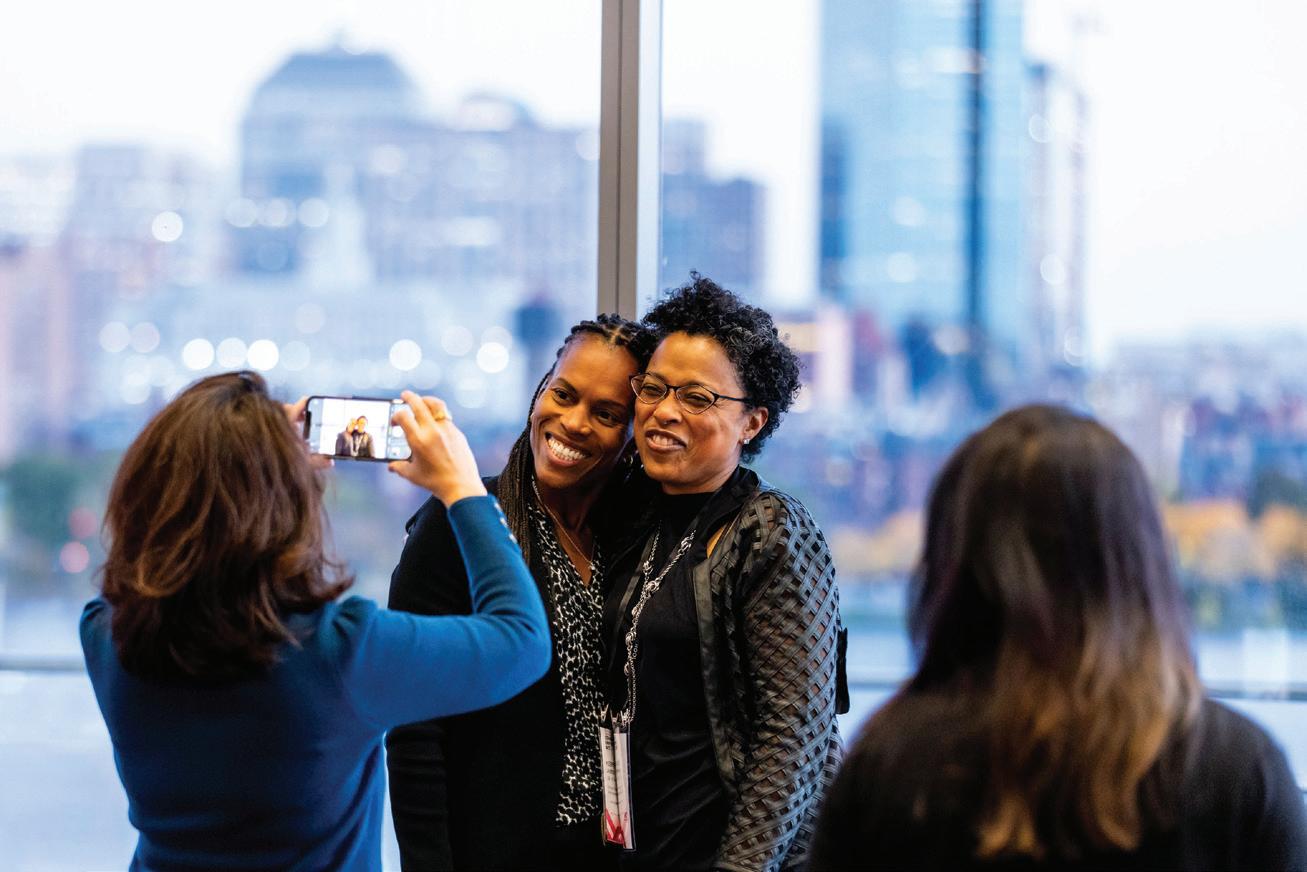
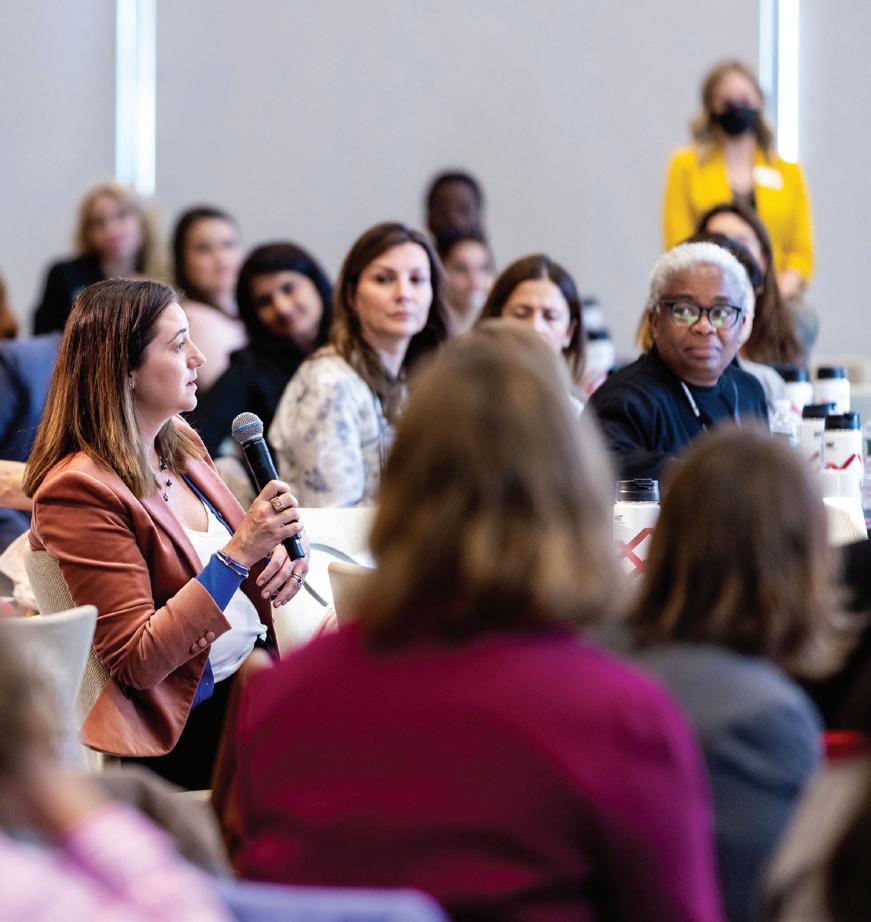
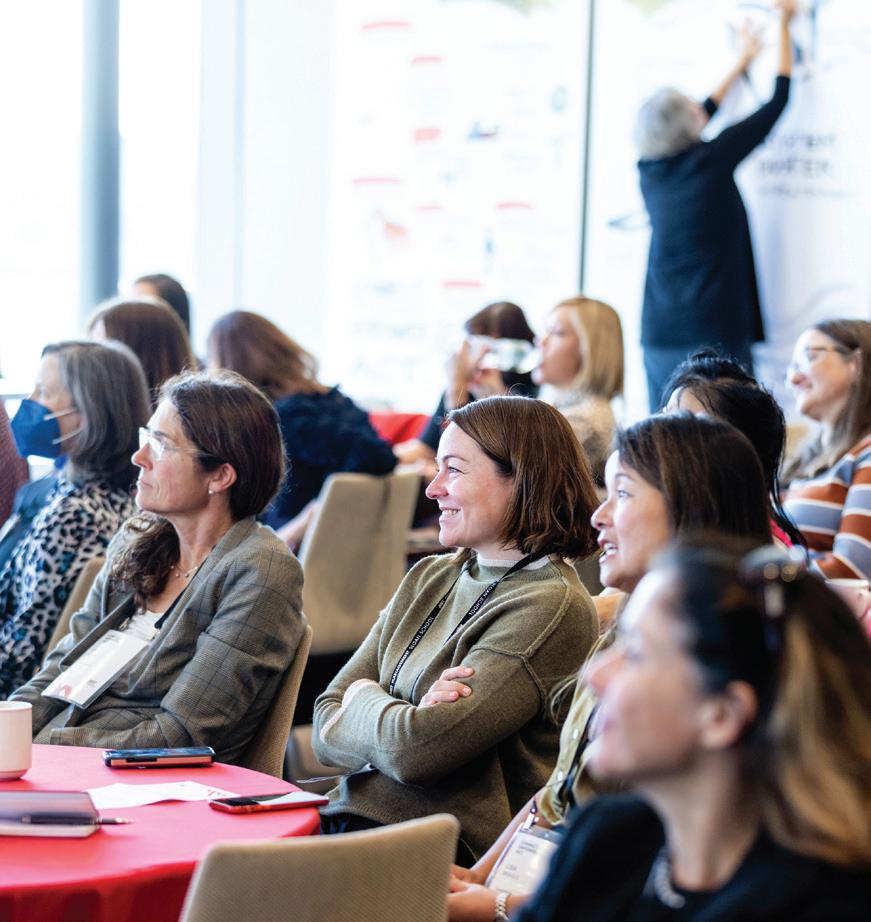
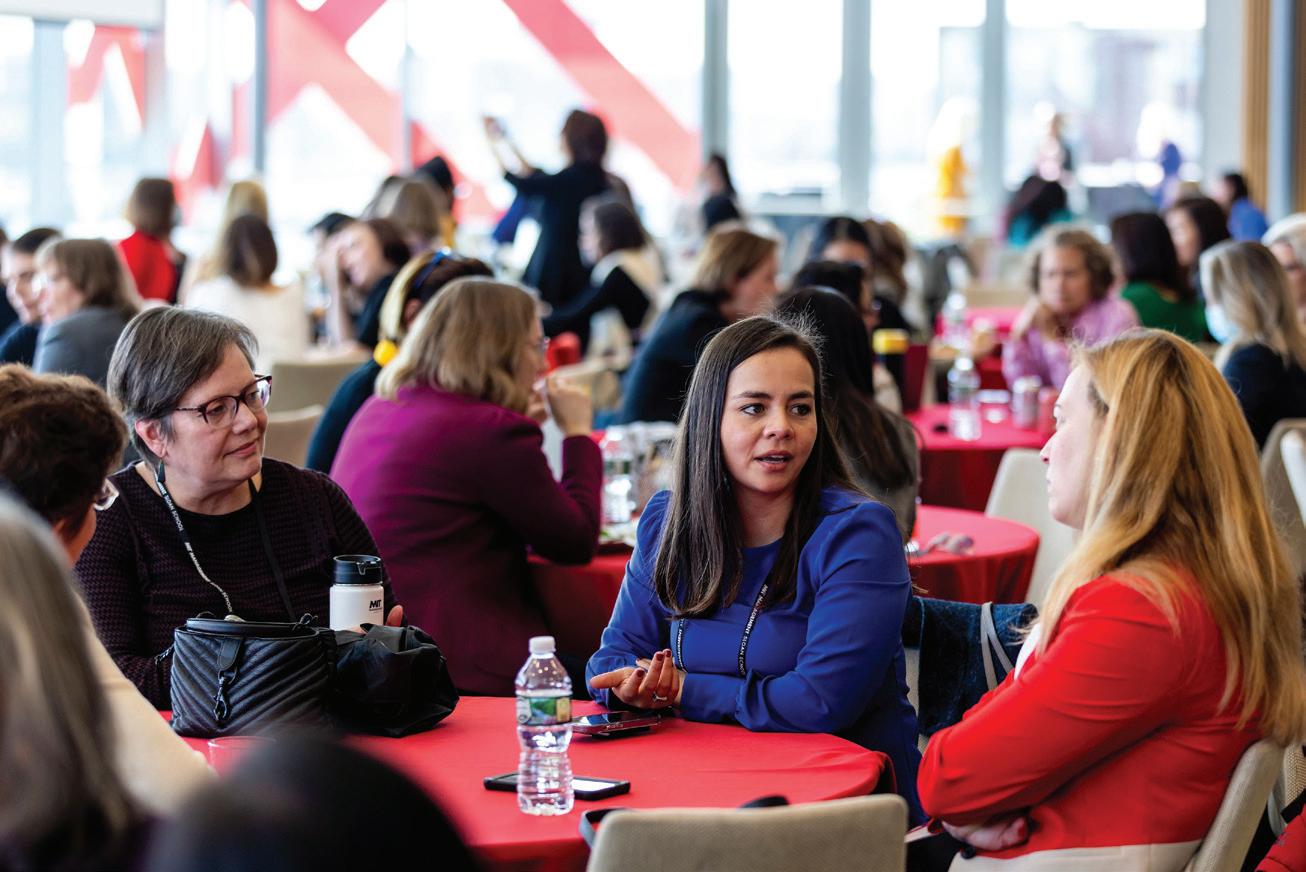
A YEAR MADE TO MATTER // 15
Making Progress on Problems
Throughout the past year, the MIT Sloan Annual Fund has empowered students, faculty, and staff to address the most pressing issues facing the school and the world—and it is all thanks to the generosity of alumni and friends like you.
This essential, flexible funding serves as the backbone of MIT Sloan. From rapidly addressing the impacts of sudden global disruptions to supporting student programming and faculty research, the MIT Sloan Annual Fund allows the community to flourish in the face of immediate needs and emerging opportunities.

It sustains the MBA, Executive MBA, and other program offices so that they can anticipate the needs of their students and meet them where they are. As a result, they are better able to make their students’ educational experiences more valuable and enduring.
The MIT Sloan Annual Fund also breathes life into campus through the Career Development Office, Action Learning labs, and numerous student life initiatives that provide opportunities for experiential learning and professional advancement beyond the classroom. This support helps students expand their horizons and apply what they have learned across the globe.
You can make a difference through the MIT Sloan Annual Fund. Scan the QR code below to make a gift today.

“Alumni and friends like you balance bold leadership with thoughtful care, and it shows in how deeply you take MIT’s motto, ‘mens et manus’ (‘mind and hand’), to heart. Your support for the MIT Sloan Annual Fund enables this enterprising community to identify innovative solutions to the world’s biggest problems. We are bolstered by your generosity, and for that we are truly grateful.”
Kathryn Hawkes, Associate Dean, External Relations and Global Programs
MIT SLOAN ANNUAL FUND
16 // MIT SLOAN SCHOOL OF MANAGEMENT
57% 22% 17% 4% STUDENT SUPPORT FACULTY SUPPORT / RESEARCH ALUMNI ENGAGEMENT PROGRAMS / INITIATIVES
ANNUAL FUND IMPACT AREAS
ANALYTICS
Gifts to the Innovations in Analytics Fund prepare students to be leaders in analytics through experiential learning like Analytics Lab and new areas of focus like the MBAn program.
ENTREPRENEURSHIP AND INNOVATION
Gifts to this fund advance opportunities and activities related to entrepreneurship and innovation that reach thousands of students every year.
FELLOWSHIPS FOR INCLUSION
Gifts to the Fellowships for Inclusion Fund enable the school to offer competitive fellowships to students from diverse backgrounds, increasing representation and inclusivity at MIT Sloan.
HEALTH
The Innovations in Health Fund advances a diverse slate of health care-related activities, including Action Learning labs and the Health Systems Initiative.
IMMEDIATE NEEDS AND EMERGING OPPORTUNITIES
The Immediate Needs and Emerging Opportunities Fund promotes ongoing innovation to ensure that the MIT Sloan experience continues to adapt in response to the pandemic and other world events.
STUDENT LIFE AND AN INCLUSIVE COMMUNITY
The Student Life and an Inclusive Community Fund supports educational opportunities that motivate students to continue learning outside the classroom.
SUSTAINABILITY
Gifts to support Sustainability advance research, courses, programming, and initiatives focused on developing principled leaders educated in and dedicated to sustainable business practices.
BY THE NUMBERS
$5.3M RAISED FOR THE MIT SLOAN ANNUAL FUND
FY22 MIT SLOAN ANNUAL FUND UTILIZATION
3,125 DONORS A YEAR MADE TO MATTER // 17
“The state of the MIT Sloan School remains strong, not least because of the ongoing support of alumni and friends like you. Your respect for what MIT Sloan has achieved—and mindfulness for what it is standing on the edge of being—empowers our continued efforts to develop the next generation of principled, innovative leaders with access to excellent faculty, pioneering research, and unique opportunities for personal and professional growth.”
David Schmittlein, John C Head III Dean, MIT Sloan School of Management
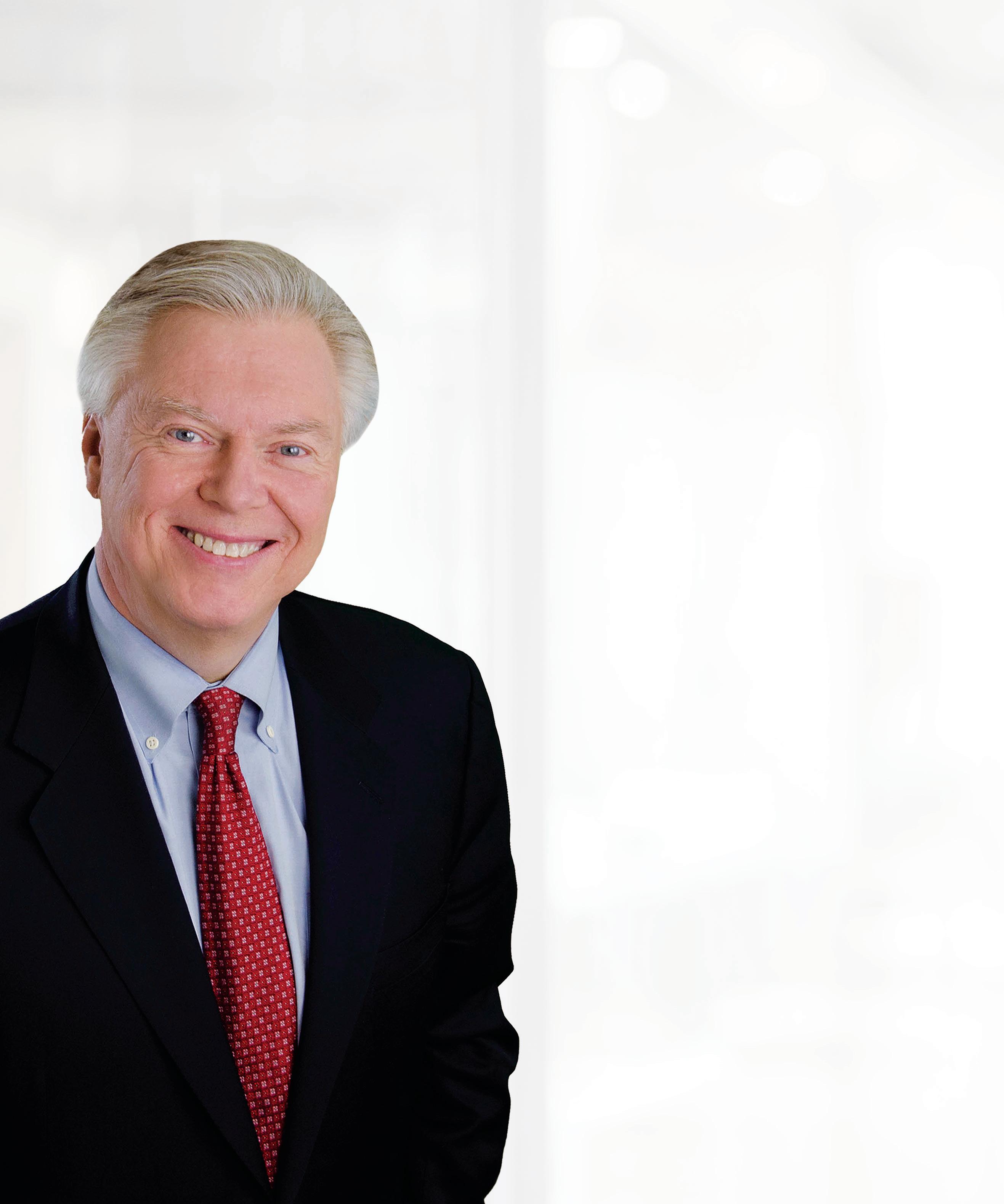
FINANCE 18 // MIT SLOAN SCHOOL OF MANAGEMENT
MIT Sloan Financial Update 2021–2022

We are pleased to share MIT Sloan’s consolidated balance sheet for fiscal years 2021 and 2022.
Thanks to the support of alumni, donors, and friends, MIT Sloan was able to pursue meaningful investments to advance our mission and ensure our greatest legacy remains: more leaders like you.
Key highlights of the school’s financial activities over the past year
MIT Sloan welcomed its most diverse MBA class to date and distributed a record $10.5 million in fellowship aid to 46% of the incoming class. Endowed fellowships are key to attracting students with demonstrated success who exemplify characteristics of the school’s culture of leadership, innovation, and presence.
For the second year in a row, the school supported 31 summer internships through the Immediate Needs and Emerging Opportunities Fund, which was established in April 2020 to provide flexible, immediate funding to address challenges posed by the COVID-19 pandemic.
MIT Sloan resumed in-person activities, including the MIT Campaign for a Better World celebration, Reunion 2022, the MIT Sloan Women’s Conference, and regional events. The school will continue to engage with its global community in person and online.
OPERATING RESULTS ($M) FY21 FY22 SOURCES OF REVENUE Net Tuition and Non-Degree Fees 146.7 179.5 Net Investment Income 35.0 39.5 Expendable Gifts 14.8 15.3 Sponsored and Other Revenue 31.0 36.5 TOTAL REVENUE 227.6 270.8 TOTAL OPERATING EXPENSES Including Salary and Other Expenses 217.8 236.1 OPERATING SURPLUS (DEFICIT) 9.8 34.6 ENDOWMENT ($M) FY21 FY22 BEGINNING PRINCIPAL 375.5 394.2 Endowed Gifts and Other Transfers 18.7 18.0 ENDING PRINCIPAL 394.2 412.2 Principal Appreciation 1,379.0 1,232.5 ENDING MARKET VALUE 1,773.2 1,644.7
A YEAR MADE TO MATTER // 19
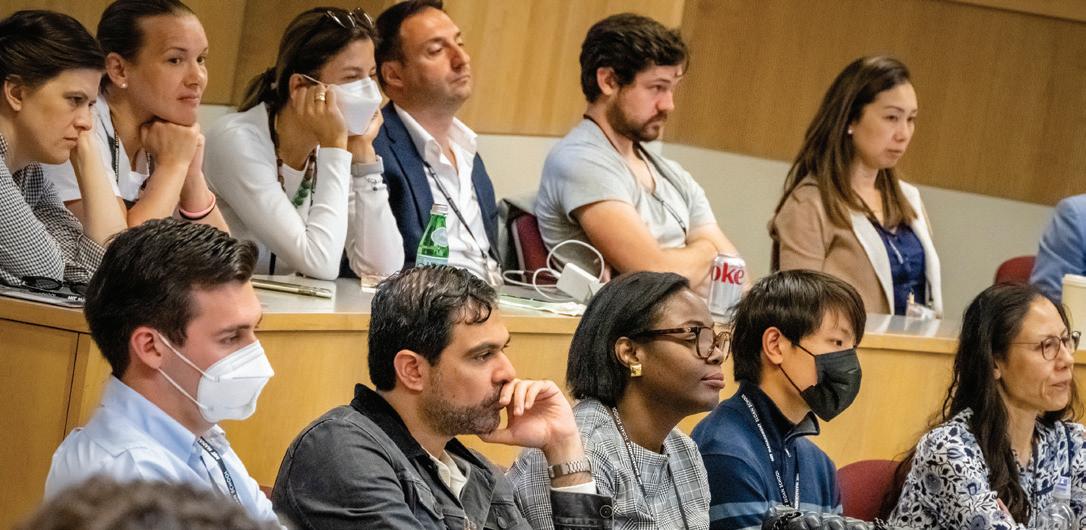
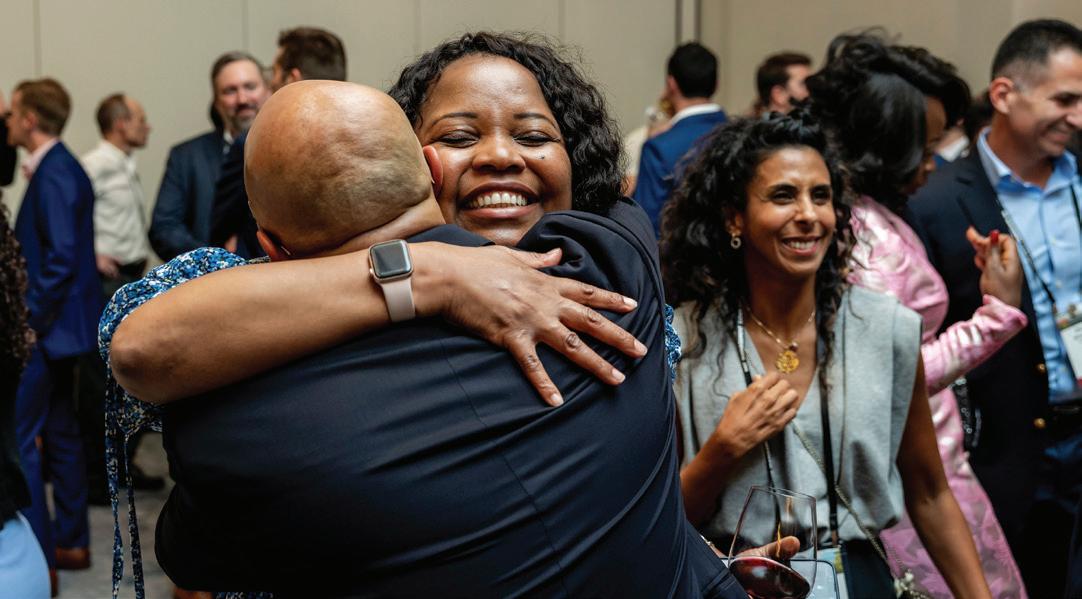
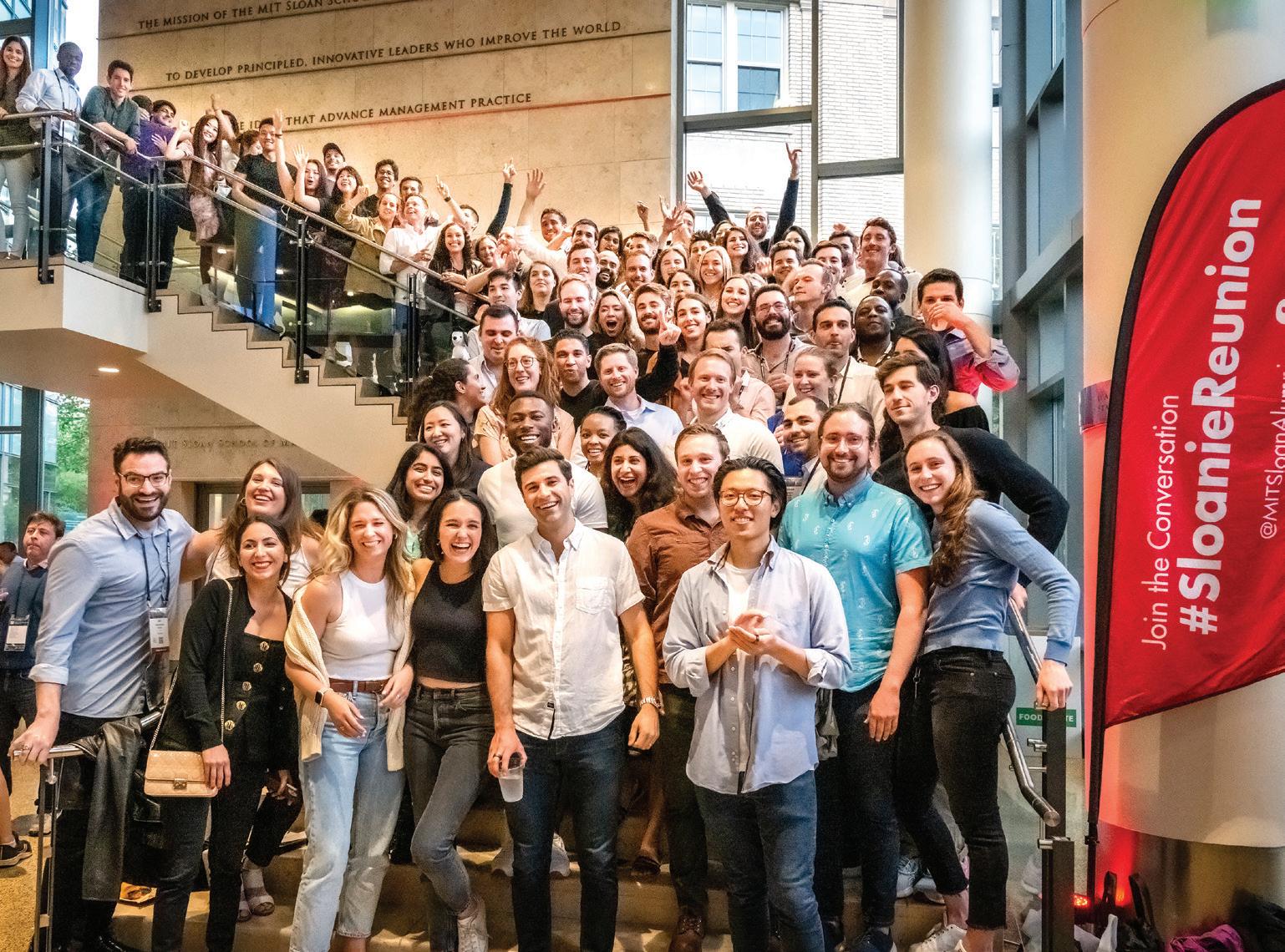

REUNION MIT SLOAN 2023 COME TOGETHER. RECONNECT. CONTINUE LEARNING. JUN 1–4 EVENTS Save the Date Join us in Cambridge from June 1–4, 2023, as we celebrate Reunion milestones for the classes of 1958, 1963, 1968, 1973, 1978, 1983, 1988, 1993, 1998, 2003, 2008, 2013, 2018, and 2022 Visit www.mitsloanreunion.com for up-to-date information. To get involved with planning or to volunteer for your class, please email mitsloanreunion@mit.edu. 20 // MIT SLOAN SCHOOL OF MANAGEMENT
One Community. Infinite Connections.
Stay connected with fellow MIT and MIT Sloan alumni in the Infinite Connection. Update your personal information to stay in touch with MIT and your classmates. Join a regional club or group. Search the directory to connect with fellow alumni in your region or industry. Update your email preferences, join mailing lists, and claim your print and digital subscription of the MIT Technology Review.
Scan the QR code to explore the benefits of your Infinite Connection account.

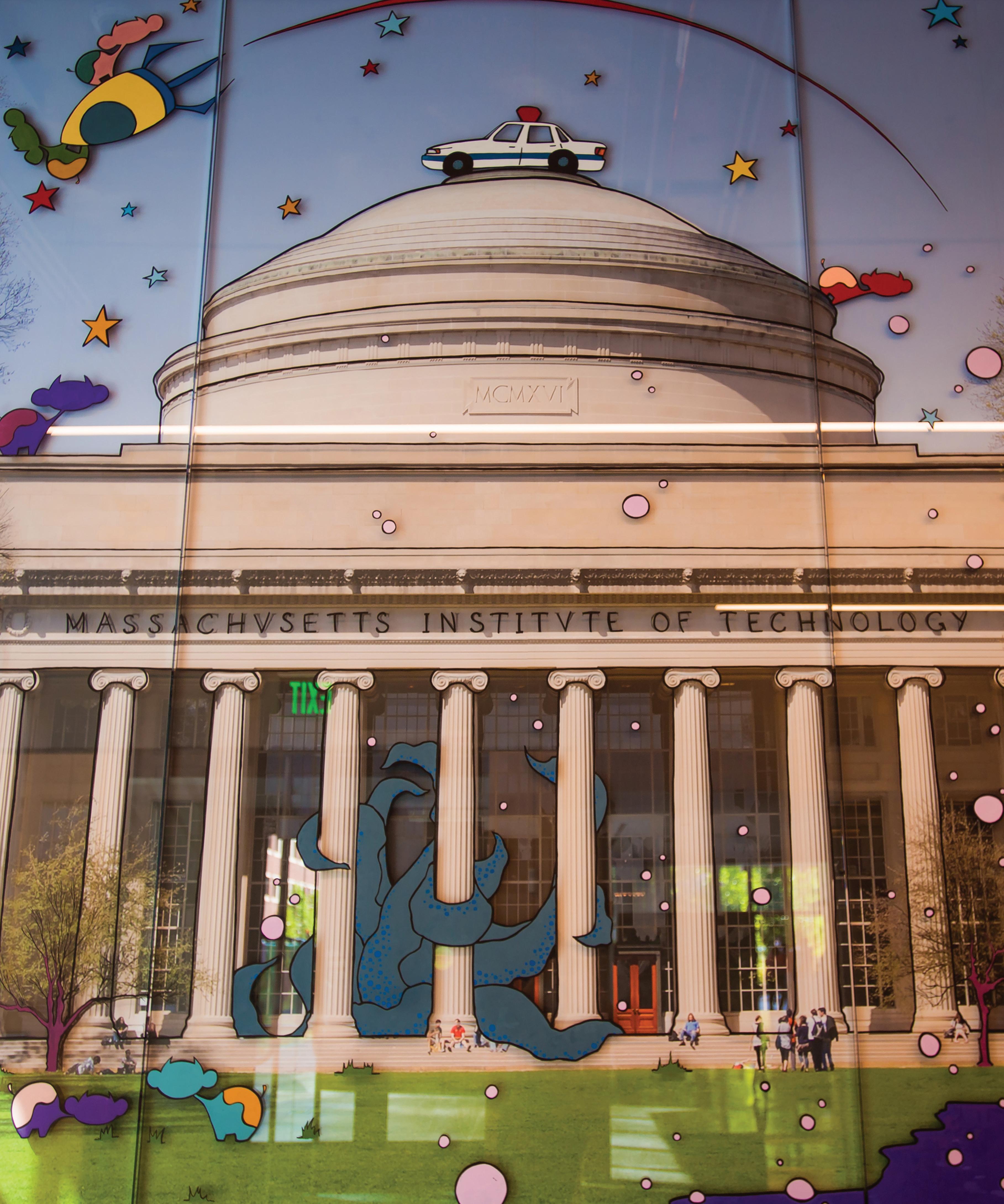
STAY CONNECTED @mitsloanalumni Office of External Relations 77 Massachusetts Avenue, E60–200 Cambridge, MA 02139 mitsloan.mit.edu/alumni



 Kathryn Hawkes Associate Dean Office of External Relations and Global Programs
Kathryn Hawkes Associate Dean Office of External Relations and Global Programs



























